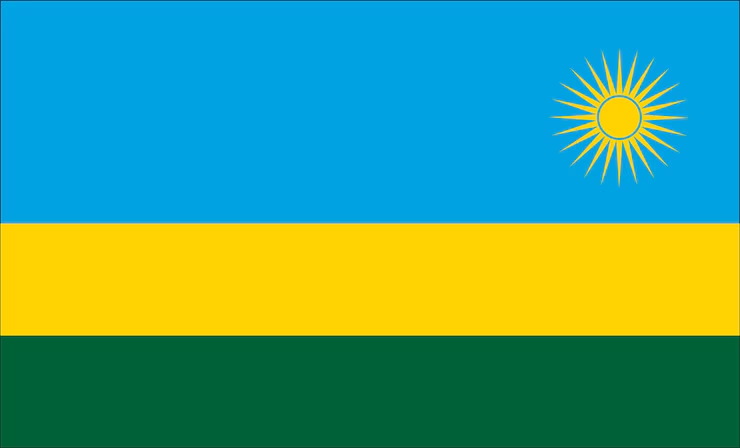Amidst a growing fintech landscape in Africa, with Rwanda becoming an anchor hub, stablecoin payments in the country have the potential of transforming the developing digital economy. These digital assets — stable fiat currencies, like the US dollar, are pegged to them — are changing the way money flows outside of countries, providing freelancers, small businesses and unbanked citizens with a fast, secure and low-cost monetary option.
In a country that is focusing on financial inclusion and digital innovation as priorities, stablecoins for Rwandan fintech is an important bridge to future-proof finance.
The Emergence of Stablecoins in Rwanda’s Fintech Ecosystem:
In Rwanda, a growing fintech scene is gathering around the country's pro-fintech government agenda, with aspirations to boost fintech use to 80% by 2029 and the number of operational fintech startups by 30%. Regulatory backing is growing and the National Bank of Rwanda, for example, has created regulatory sandboxes that will help in part in controlled trials of digital financial products in the country including blockchain fintech in Rwanda.
While cryptocurrency is not currently legal in payments and crypto mining is prohibited, there are current policy dialogues that indicate movement toward such integration. In this evolving context, stablecoins like USDC and USDT in Rwanda can provide instant utility by sidestepping the many points of friction that weigh down conventional financial infrastructure—especially when it comes to cross-border payments.
Also read: Stablecoin Payments in Burkina Faso: P2P Solutions for a Cash-Based Economy
What Are Stablecoins, and Why Do They Matter in Rwanda?
Stablecoins are cryptocurrencies that are pegged to fiat currencies such as the US dollar. They aren’t particularly volatile, unlike Bitcoin or Ethereum, making them great for non-speculative transactions and remittances. Two of the major stablecoins, USDC and USDT, are already in use worldwide to help provide low cost, near instant, cross-boarder payments.
In the case of Rwanda digital payments, stablecoins offer the benefit of a stable store of value and fast medium of exchange—addressing actual problems of currency volatility, expensive remittance fees, and slow settlement. Applications range from consumer payments, B2B transactions, and crypto payroll for remote workers in Rwanda.
Real Use Cases: Stablecoin Adoption in Rwanda and Throughout Africa
Africa is one of the fastest-growing crypto regions. The region, Sub-Saharan Africa, saw remittances soar by 16.8% to $54 billion in 2023, Mahecic said. Significantly, stablecoins represent 43% of crypto transaction volumes in the region—larger than Bitcoin in several markets thanks to suitability for payments.
In Rwanda, local freelancers and SMEs are increasingly turning to stablecoins to be able to get paid from abroad quickly. Visa’s team-up with Yellow Card to advance USDC payments in Rwanda and across other African countries is part of this broader trend of stablecoin adoption across Africa.
How Rwandan Freelancers Use Stablecoins to Receive Payments:
Rwanda’s gig economy is booming, but freelancers continue to face a challenge of receiving quick, affordable and secure payments. They are often shackled by the restrictions of incumbent banking, delayed transactions, high fees and limited access to international platforms. This is exactly where crypto for freelancers in Rwanda — specifically for stablecoins — becomes game-changing.
Using USDC and USDT to send cross-border payments in Rwanda Freelancers in Rwanda can:
- Get paid in minutes, not days
- Avoid currency conversion losses
- Cut out the middlemen and high-cost services
- Access global clients with ease
This access means that more Rwandans have access to economic opportunities – including in entrepreneurship and the informal sector.
Seamless Stablecoin Integration: TransFi for Rwanda
One of the main obstacles to stablecoin adoption is infrastructure and access, specifically on- and off-ramping between fiat and digital currencies. This is where services such as TransFi are so important.
TransFi Rwanda integration enables fintech startups, wallets, rapids, and gig platforms to embed easily accessible USDC/USDT on/off ramps, allowing freelancers and end users to convert local Rwandan francs to digital dollars and vice versa. TransFi is enabling startups to innovate and focus on stablecoin solutions for the Rwanda fintech startup industry; leveraging global security standards, KYC compliance, and fast settlement without the regulatory or technical headaches.
Such subtle, back-end infrastructure is just the kind of thing that’s necessary for pushing digital dollars for Rwanda’s gig economy to the masses.
Navigating Regulatory and Security Challenges:
There is, however, some pretty significant regulatory and security considerations around stablecoins. At present, stablecoins are not officially recognized as legal tender in Rwanda, and their use falls into a legal gray area. Mining is illegal and the direct use of crypto to settle goods or services is not permitted by the government; however, experimenting with regulatory sandboxes is.
Key concerns include:
- Consumer protection
- KYC/AML compliance
- Cybersecurity risks
- Cross-border capital controls
Rwanda is likely to further develop its digital asset regimes, particularly since it plans to look into adopting a Central Bank Digital Currency (CBDC) in 2026. That could also offer long-sought clarity and co-exist with private stablecoins such as USDT Rwanda and USDC Rwanda, which would support different use cases.
Also read: Stablecoin Payments in Mali: Digital Tools for Merchants and Gig Workers
Economic Impact: Financial Inclusion and Digitization
The wider acceptance of stablecoin payments in Rwanda is consistent with the country’s digital economy for all vision. Research indicates fintech acceptance is associated with growth and stablecoins speed up this process:
- Reducing transaction costs
- Increasing speed and reliability
- Enhancing access for unbanked individuals
- Formalizing cash-heavy sectors
For Rwanda, where many people depend on mobile money and informal financial networks, stablecoins present a more transparent, traceable and inclusive option. They bring crypto to remote work in Rwanda, especially for youth and women-owned microenterprises.
Conclusion:
As Rwanda continues to evolve its fintech industry, stablecoins are a fundamental technology for the promotion of inclusion, innovation, and financial empowerment. They are already being put to use by freelancers, small businesses and gig workers in real world use cases.
With careful regulation, the kind of partnerships around TransFi’s integration, and broad infrastructure build out, stablecoin payments in Rwanda could usher in a new era of digital finance, one that connects analogue systems to a decentralized economy.
It is not an easy journey, but with the appropriate ecosystem and policy support, Rwanda might be on course to spearhead Africa’s revolution in finance through crypto.
FAQs:
- Are stablecoins legal in Rwanda?
Stablecoins are not yet accepted as legal tender in Rwanda. But the government permits some experimentation in the form of regulatory sandboxes as it drafts laws.
- How do Rwandan freelancers use stablecoins to get paid?
Freelancers accept payment from international clients through stablecoins (such as USDT or USDC) which can be sent and received fast and cheap thanks to fintech platform or wallets supported by providers like TransFi.
- How do stablecoins benefit Fintech startup companies in Rwanda?
Stablecoins will help startups cut down on transaction costs, extend cross-border services, and grant greater access to digital payments free from the onerousness of legacy banking systems.
- Can stablecoins be converted into Rwandan Francs?
Yes. New platforms such as TransFi will allow users to on-ramp and off-ramp Rwandan Francs from stablecoins thus spend and cash-out in the real world.
- How safe are stablecoin transactions in Rwanda?
Handled through compliant, secure channels, stablecoin transactions are quite secure, especially if combined with KYC and AML guarding actions.
Table of Contents
Suggested Article
Explore our products

Make global payments at the speed of a click

Accept payments, remove borders.

Unlock Seamless Digital Currency Transactions Anywhere
























